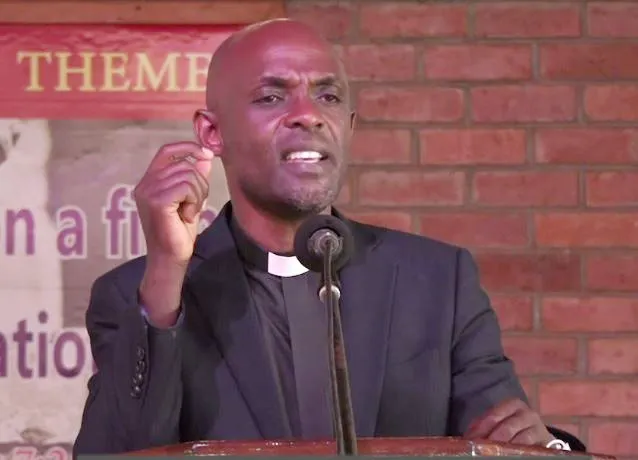By Kefa Senoga
The church relations department at Uganda Christian University (UCU) has embarked on training the Anglican clergy in Uganda with contemporary skills to be able to evangelize better in the ever-changing world.
The Manager of Church Relations at UCU, the Rev. Richard Mulindwa, said that one of the areas they have put emphasis on as they train the clergy is educating them to integrate Information and Communications Technology (ICT) in their work. The church relations department acts as a link between the university and the church.
“During lockdown, many of our churches shut down completely whereas our colleagues from the Pentecostal church were using digital and online media to do pastoral work and evangelism,” the Rev. Mulindwa notes.
The gospel does not stop at preaching at the pulpit, Mulindwa argues, emphasizing that the clergy need to use all the available avenues to take the gospel to the people.
“Social media, and even just an SMS (Short Message Service), can be powerful tools for reaching out to people with a word of encouragement,” he said.
Among the other issues that the training delves in is land matters.
“Many land grabbers are targeting church land and part of the reason it’s happening is because some members of the clergy have limited knowledge in that aspect,” Mulindwa explained.
He said they have partnered with the UCU School of Law, to provide lawyers among the students and lecturers, to guide the participants on how best they can deal with issues related to land management.
The church has on several occasions been embroiled in disputes, especially on land situated in prime areas, with most of them having squatters. In 2016, Anglican Archbishop Stanley Ntagali and close to 40 other bishops escaped an attack by a mob when the prelates had gone to inspect a church-owned land in Mukono, central Uganda.
In 2020, operating on the orders of a businessman in Kampala, workers demolished a Church in Ndeeba, Kampala, with the businessman claiming ownership of the land on which the church was sitting. Situations like these make the training a timely venture for the clerics.
The Church of Uganda oversees 55 pre-primary schools, 4,904 church-founded primary schools, 460 secondary schools, 50 post-primary schools, including vocational training schools, and six universities. According to Mulindwa, the training, which usually takes up to three days, with a certificate presented to the participants, also focuses on how the chaplaincies in such institutions can be revamped so that they play a more influential role in the spiritual nourishment of the learners in the institutions where they belong.
Many parents take their children to church-founded institutions with the hope that Christian values will be instilled in the learners, a role that is often played by the chaplaincy.
Mulindwa said they have so far reached members of the clergy in the dioceses of Mukono, Busoga, Mbale and Rwenzori, and that some of the responses they have been getting are encouraging.
“Many churches have started online prayers out of this training and many pastors have taken up online ministries from their respective dioceses and parishes,” Mulindwa said.
Since the members of the clergy are servants of God in the church and family people outside church, they are also exposed to the every-day challenges that families go through. “We also talk to the clergy about child upbringing, issues of marriage, and sex, among others, because they are a pertinent matter in their lives,” Mulindwa said, noting that people who are approaching retirement at their workplaces also have been included.
Last year, UCU also extended an invitation to teachers in mission schools in the Church of Uganda to participate in a special training to enable certificate-holding teachers to be able to upgrade and attain bachelor’s degrees through specialized programmes that suit their work schedules.
“The government is nowadays demanding that all teachers are graduates. We are calling upon teachers from the mission schools to come and enroll for the courses,” UCU Vice Chancellor Assoc. Prof. Aaron Mushengyezi said last year.


